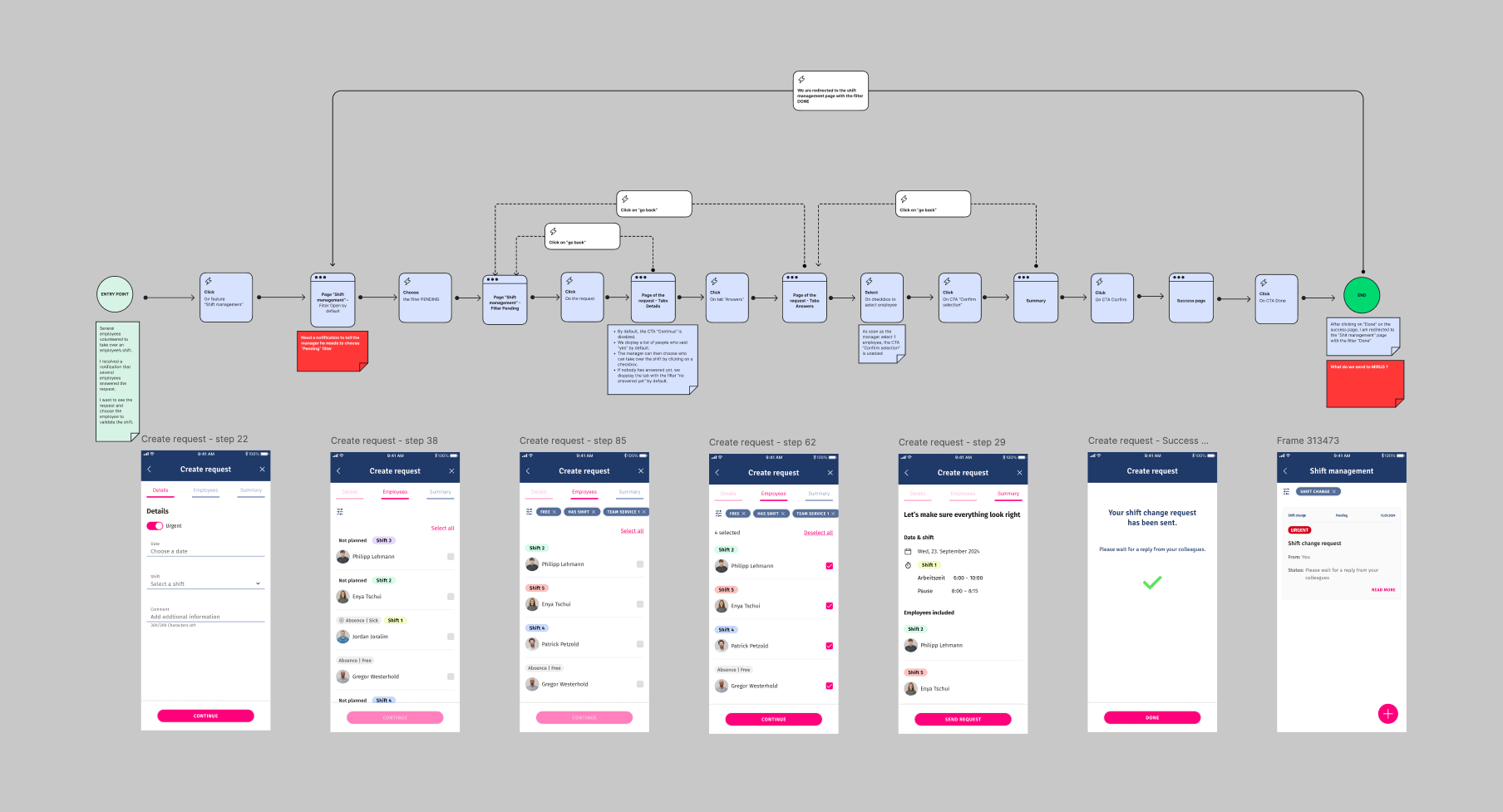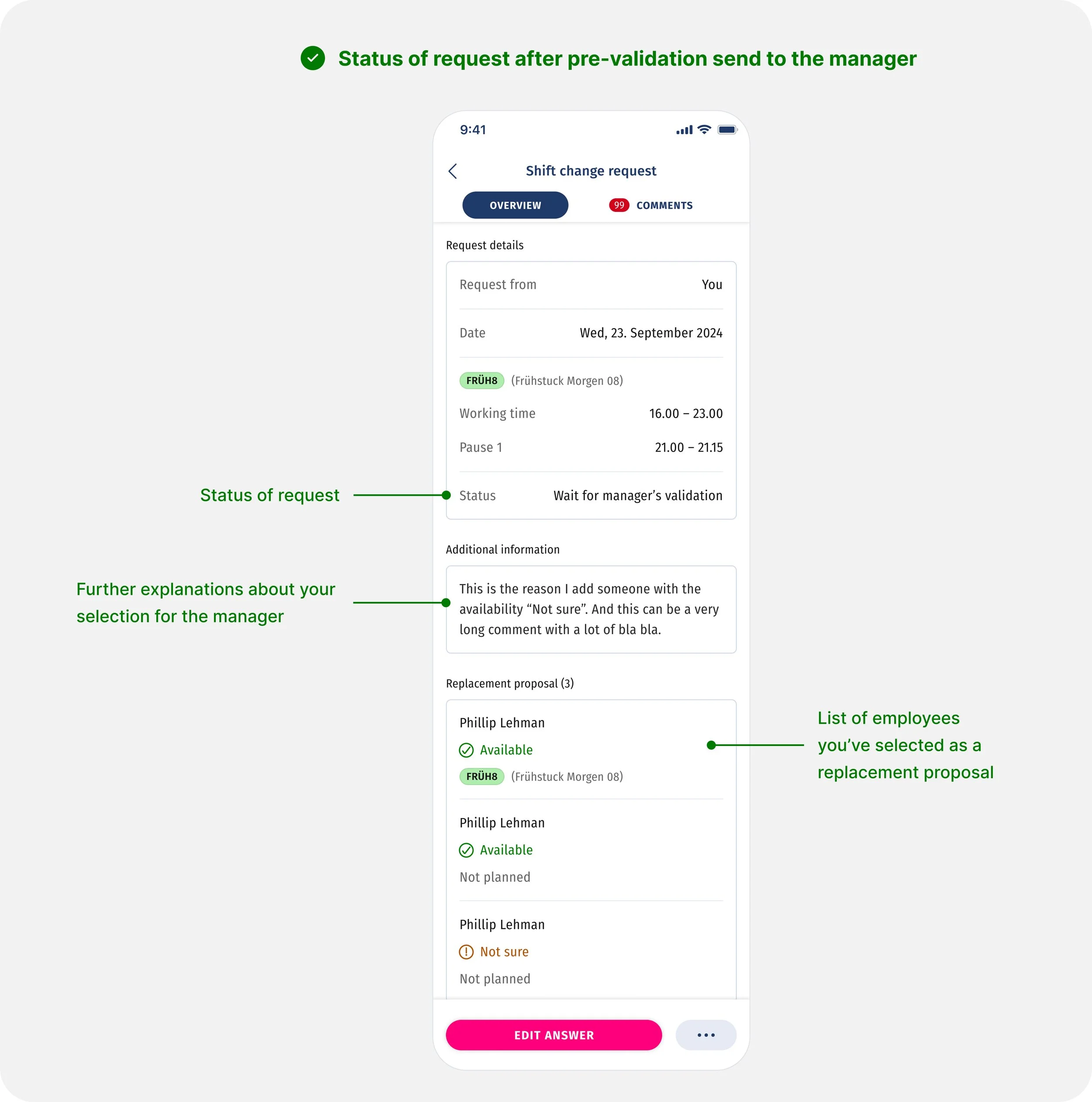IMPROVING AN APP When Users Are Out of Reach
8min
PROJECT SNAPSHOT
SUMMARY
Design a solution that allows dog owners to easily book a local dog walker. My task is to deliver a high-fidelity prototype for user testing.
ROLES
For this project, I’ll focus on the “dog owner path” with responsibilities including:
UX Research
Analysis
Ideation
Prototyping & Testing
COMPETITIVE ANALYSIS
WHY ?
I want to find what the competitors do well that I can re-use ;
I want to find what they are not doing so well that I can improve ;
I want to find what conventions are in place that I must follow.
I focused on 2 famous walking apps : Rover & PawShake.
I also analyzed an app which solves a similar problem but from an other “industry”: a baby sitting app.
For each app, I went through the main user task : To book a dog walk with a dog sitter.
COMPETITORS
WHAT I DID
IMMERSION & RESEARCH
MY ACTIONS
I have no experience with dog so I decided to met some dog owners I know ;
I talked with random pet owners (and with their dogs) when I had the occasion ;
I had the opportunity to take care of a dog for a couple of days for an American couple living in Basel.
SOLUTIONS
LET’S SOLVE THE PROBLEM STATEMENT
MY Actions
MAKING A FAST AND SIMPLE SHIFT CHANGE REQUEST FLOW
I broke down the problem statement into two separate flows : one flow for employees, one flow for managers. It helped me to have a better overview of the overall tasks and align stakeholder expectations for 2-week sprint.
If the request comes from an employee
If the request comes from a manager
GAIN STAKEHOLDER BUY-IN FOR THE FLOWS WITH “QUICK AND DIRTY” WIREFRAMES
User flows can be sometimes difficult to understand. Thanks to the combination of flows & wireframes, the flows were validated very quickly.
(I know the picture isn’t clear—my point is to show how user flows and simple wireframes work together order to help the stakeholder to understand the flows.)
DESIGN - TRANSLATED REQUIREMENTS AND INSIGHTS FROM RESEARCH INTO TANGIBLE SOLUTIONS
DESIGN - IMPROVE THE CURRENT DESIGN
I needed to balance consistency by using existing flawed components with improvements when needed. I leveraged my frontend background to design with technical feasibility in mind, syncing regularly with engineers.
My redesign using existing components from Design System and my new components.
Proposed a new progress indicator to fix mobile spacing issues, plus a quick accessibility color check.
ONe SINGLE USER-TEST
AND NOT ONE MORE.
As I said in the project snapshot, Stakeholders wanted to go as fast as possible into production and tested after the feature release. However, I managed to negotiate one SINGLE user test to validate our concept.
Situation
Brainstorm the most important things to discover in order to validate our concept flows
I have only one single test. I need to prioritize what we need to discover.
I didn’t used quantitative metrics
It wouldn’t be especially relevant because we only have one user test.
I organize feedbacks effectively
I used “the severity scale” to rank the user’s pain points
MY Actions
The user validated the flow’s speed and clarity.
The user highlighted key info managers and employee need, like cost and experience.
The user emphasized the importance of push notifications to promptly alert employees to urgent shift changes.
With one test, I couldn’t pinpoint a clear access point.
Results
Yes, we had very relevant insights and the flow was “validated” by the user.
However, we definitely can’t say our flow is “validated” when it was tested by only one user.
Critical thinking
CONTINUE THE PROJECT AFTER A TERMINATION OF EMPLOYMENT
The company let go several people for “strategic and economic reasons” — I was one of them. So before leaving, my last tasks were :
Define metrics for their futur testing
Do the handoff for engineering team
Continue to advocate for more user testings before the release of the future
SITUATION
Food for thoughts
A FEW THINGS THAT I LEARNED
What are the “rooms for improvements” ?
At times, I over-engineered simple components. Note to self: Stick to the KISS principle—Keep It Simple, Stupid.
Continuing advocating for user testing is crucial. And it worked. Even if it is for one single user test.
















